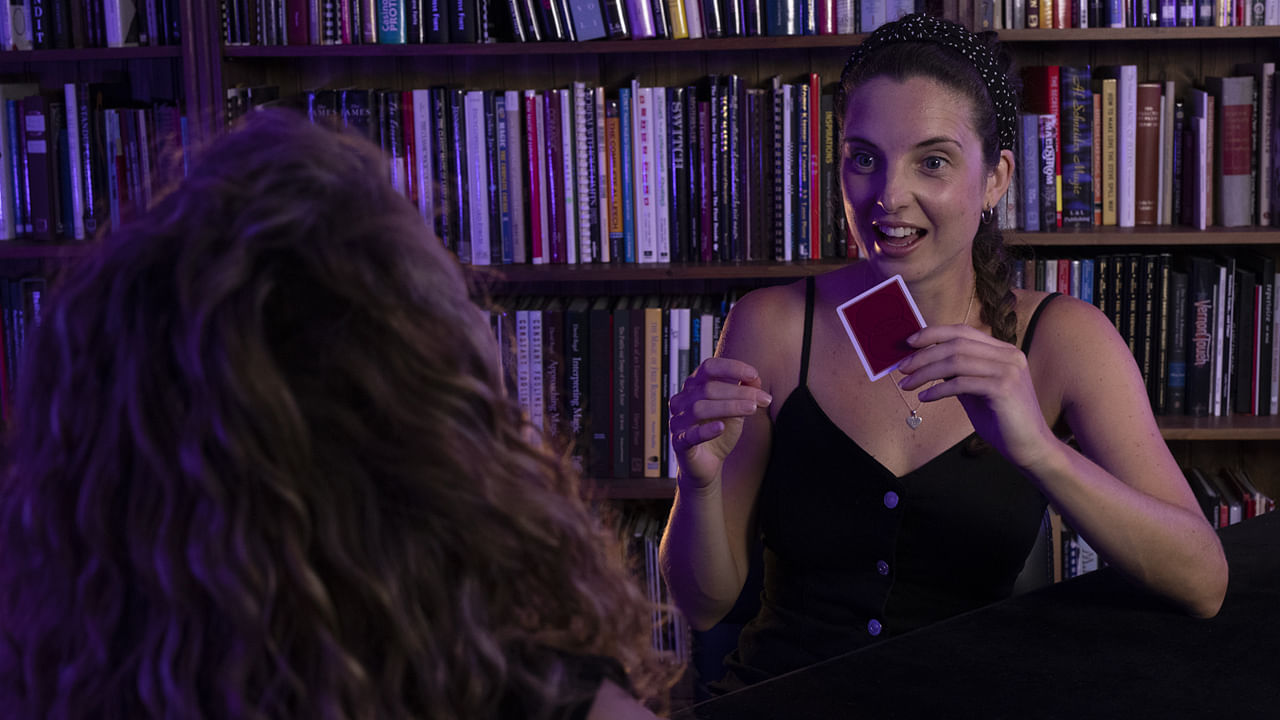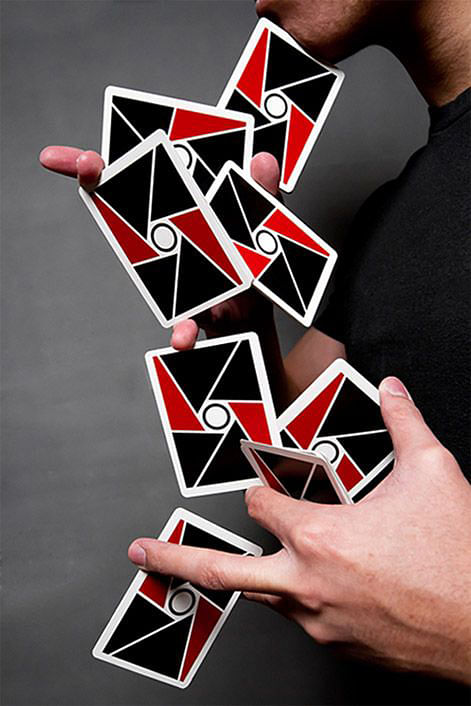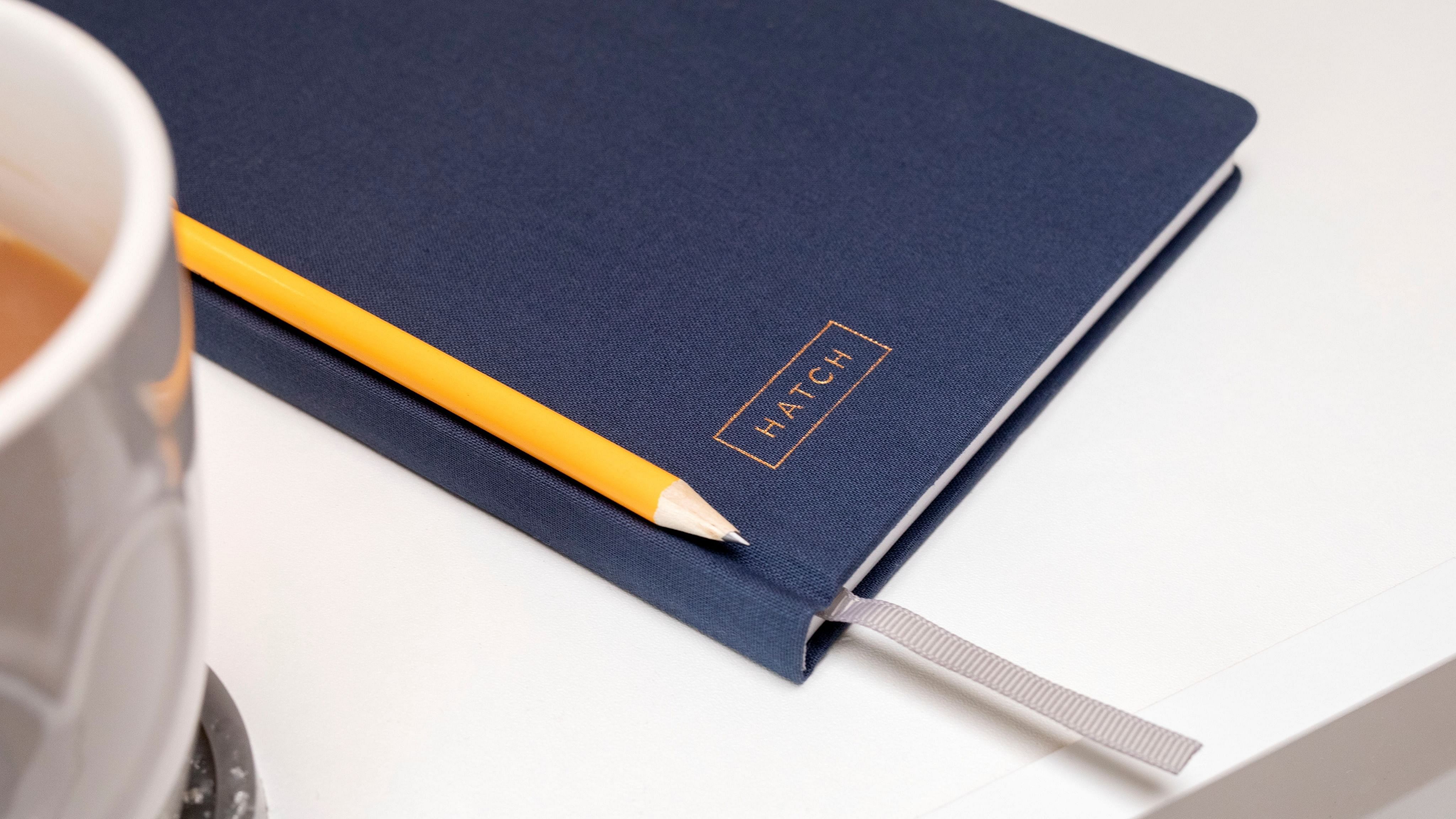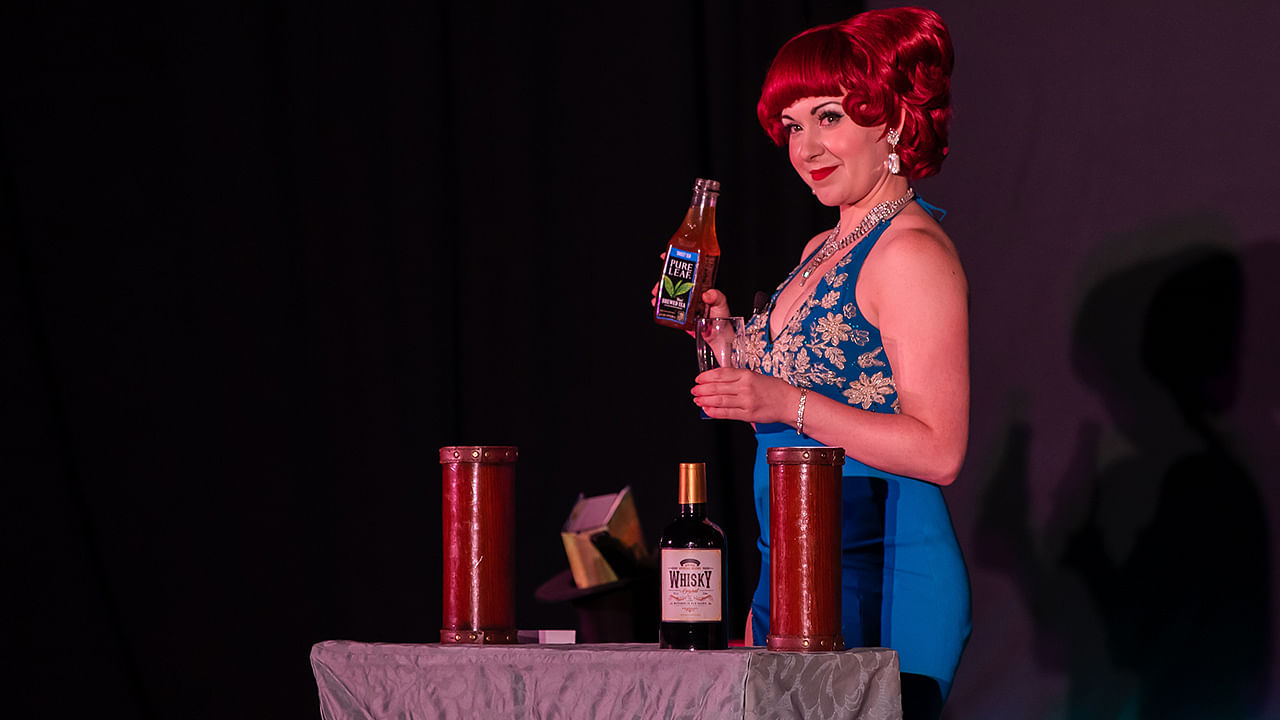How to Practice Magic Tricks
There are so many benefits to learning magic tricks. The ability to grab a deck of cards and amaze friends with easy card tricks is an addictive power. When you realize that you can learn magic tricks for free, it's so easy to become the life of the party. But, if you want to learn how to properly entertain your friends and family though, you’ll also need to learn how to practice magic.
As discussed in our exploration of the best ways to start learning magic magic tricks, there are so many resources to learn easy magic tricks like Dynamo, David Blaine or Michael Carbonaro. Many of them are even available in your local library.
From magic card tricks to easy magic tricks with coins and mind reading tricks, there are a ton of easy and fun magic tricks to try on your friends today.
The entire Vanishing Inc. magic shop team is filled with professional magicians. So, we know the idea of magic training can be a bit daunting. But, don’t worry. We’ve put together some helpful tips on how to practice magic.

Avoid Practicing the Wrong Way
You can’t improve your magic tricks without practicing. That seems pretty obvious. This is no different than any other hobby or skill. But, what many magicians don’t realize is that, sometimes, practicing too much can actually be more detrimental than not practicing enough.

The claim that it takes “10,000 hours of practice to master something” is often thrown around when it comes to discussing the idea of practice. While this idea is actually based on scientific research from psychologist Dr. Ericsson, it is also often paraphrased incorrectly. Many people who recite this fact, often overlook that it’s not just 10,000 hours of practice, but rather 10,000 hours of deliberate practice needed to acquire expert performance.
It may seem like a small difference, but it’s actually quite significant. Many magicians will often fall into the trap of mindless practice. This is when you just act like a broken record, continually repeating a move or routine on repeat. Like a tennis player practicing their serve against the wall. While this might be an ok way to practice mindfulness, it's not the best way to practice magic.
Don't get us wrong. It's ok to use this type of mindless practice occasionally while watching TV or commuting. But, relying too much on it can actually have a harmful impact. Not to mention, mindless practice is often a big waste of time. It generally leads to an auto-pilot mode that does very little in terms of productive learning. (If you want to keep your hands and mind occupied during dull times, you may want to try a fidget toy to calm your anxiety instead.)

The worst part though is that, if you’re not analyzing what’s going on with your hands and body, you might actually be strengthening bad habits. If you thought practicing a new sleight of hand move was tough, just wait until you have to try to unlearn it because you committed it to memory wrong.
We think of a better way of looking at things is: “Practice doesn’t make perfect, practice makes permanent. “
At the end of the day, mindless practice is not all bad. In limited amounts, it’s a good way to get your hands in rhythm when first trying the card magic basics you can learn for free through the Vanishing Inc. magic store, or our testing out fancy card flourishes as you learn how to do cardistry.
But, if you really want to advance your magic, you’ll need to shift your focus and work towards concrete goals.
Practice Magic Like you Mean It
Deliberate practice is a much better way to to learn and practice magic since it provides way more structure. Each practice session should be designed to work toward a set goal. Instead of mindless trial and error, you’re monitoring your progress and tracking results.
Don’t Leave it to Memory
Our memory is a fickle thing. In fact, many mentalism tricks and magic tricks rely on the magician finding a way to convince the audience to remember something different than what actually happened. Relying on your memory will ultimately result in poor practice habits and limited advancement
Go into your dedicated practice sessions with a plan. Record each one and then watch it back. Carefully analyze each detail. You’ll quickly start to notice habits you had never seen before.
Let’s look at an example using one of the most popular card magic tricks ever: The Ambitious Card.
The Ambitious Card is an amazing card trick in which a playing card continually jumps from the middle of the deck to the top of the deck. It usually has multiple phases that get increasingly more difficult before the selected playing card eventually appears in an impossible location.
When practicing the Ambitious Card using mindless practice, many magicians might just go through the routine front to back. Some might practice a certain phase over and over, but even that still does not help you understand the routine. Instead you want to truly recognize and enhance each separate beat.
Watching a recording allows you to more critically analyze yourself and find out why certain moments don’t seem to be working as well as they could. Are you too stiff in your movements? Is the deck of cards too close to your body, making it too difficult for the audience to follow what is happening? Are you bringing unnecessary suspicion to your double turnover because you unknowingly start rushing as soon as you perform it?
As you watch, take notes in a practice notebook (we love the “Hatch Productivity Notebook” and/or “Pocket Notebooks” combined with “The Perfect Annotator”). Define goals you want to achieve and work toward viable solutions. The more you practice mindfully, the more you unlock the micro-discoveries that are essential to the art of advancing your magic skills.

Other Tips for Practicing Magic Tricks and Helpful Advice for Beginner Magicians
Don’t Overdo It
It doesn’t matter whether you just use magic to amaze friends and family or are a professional magician, magic is supposed to be fun. And nothing kills focus and motivation more than dull and monotonous tasks.
Practicing magic should not feel like you’re sitting in a boring class or meeting. It should not feel like a chore. One of the best ways to prevent boredom is to ensure your practice sessions have a goal in mind. But you should also make sure they are limited to an amount of time for which you can stay focused. Sometimes it might just be 10 to 20 minutes. Other times it could be upwards of an hour. But, don’t spend 3 hours on a sleight of hand move just because you think you have to.
Don’t Forget to Take Breaks
When things aren’t working, the natural inclination is to work even harder. However, this can quickly lead to burnout and make things even more difficult. Sometimes, you just need to step away. This is especially true when learning a particularly difficult sleight of hand magic trick.
After practicing many days in a row, you may feel like you’ve hit a wall. Take a few hours, or even a few days, off. You’ll see when you come back that your hands and mind have had a chance to process the muscle memory and may flow more naturally.

Avoid Being a Jack of all Trades
When first starting out in magic, there are so many different types of magic tricks that you can learn. We always encourage beginner magicians to try them all and find what they like most. Reading magic books and watching downloads is so exciting.
However, you must also recgonize that it would be impossible to devote the practice needed to properly learn every magic trick you see. So, it’s always important to remember that mastering 5 amazing card tricks or powerful money magic tricks will ultimately serve you way better than being just good enough at 50 magic tricks.
Show Magic to Others.
It’s important to not limit your practice to just happening in front of a mirror or camera in your room. You must also engage in active practice (a.k.a. performing for others). Magic is a performing art and the only way to truly evolve your skills is to start performing for other people.

We get it, performing magic for real people can be extremely nerve-wracking. But, the more you do it, the easier it gets and the better magician you will be. Don’t just perform for friends or family though. Since they know you very well, they’ll often look at the trick through a more critical lens and won’t always be the best barometer for how well a trick is performed. Whether at work or a party, you just need to try to find opportunities to perform magic tricks for a variety of different people.
Just remember to have fun and don’t be afraid to fail!
At the end of the day, it’s not the end of the world if a magic trick goes wrong. Even the most experienced magicians in the world like David Copperfield, Shin Lim, Mat Franco or any of the other famous magicians you find on the Las Vegas strip have messed up tricks at some point in their lives. The only way to get better is to make mistakes.
The more you practice and perform magic, the better you’ll get at handling mistakes. One of the most important skills you can have as a magician is the ability to pivot and “save” a magic trick gone wrong. This can only be honed through deliberate and active practice.
So grab a deck of cards (we have 1,000s of custom playing cards to choose from) and start learning magic tricks today!

